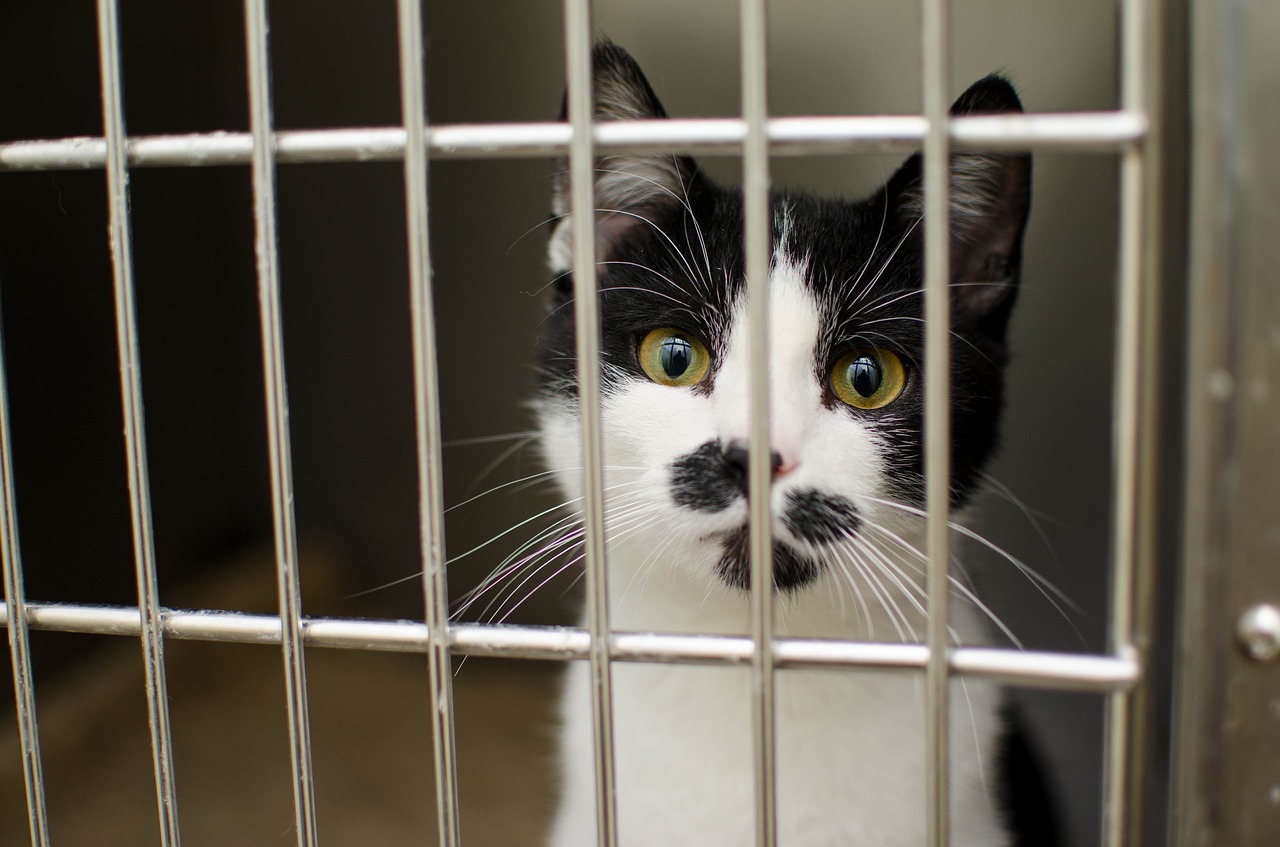Don’t Panic
If your cat or dog got out of your house or yard, don’t panic. There are many resources and techniques available to help you reunite with your cat or dog, but it’s important to take action quickly. Cats and dogs can wander quite far and may do things you wouldn’t predict. Here are the steps you can take to find your lost pet.
Search the Area
As soon as you notice your cat or dog ran away, head out on foot or in a car and search the surrounding areas. The longer you wait, the larger the perimeter you will need to search. While it’s important to get out and search for your pet, make sure someone is available to wait by the phone if your pet’s collar tag lists your phone number.
Before you head out, bring some bait with you. This works best if your dog got out as many will respond when they hear you shaking a treat box or squeaking their favorite toy. Always use a calm, happy tone when you call out to your pet. If you sound angry or upset, they may hide.

Contact Animal Control and Local Shelters
If your dog or cat got out and you don’t find them quickly, there’s a good chance they will be picked up by animal control or a shelter and kept safe until you can be reunited. It’s a good idea to file lost pet reports with every shelter within 60 miles of your home. Every day, visit the shelters closest to your home to see if your pet has been picked up.
If there are no shelters nearby, contact your local police department and provide a description of your missing pet and contact information.
The following are important resources to contact for a missing pet in San Diego County:
- San Diego Humane Society — 619-299-7012
- Rancho Coastal Humane Society — 760-753-6413
- San Diego Animal Services — 619-767-2675 for North Shelter (Carlsbad), South Shelter (Bonita), and Central Shelter (San Diego)
- El Cajon Animal Control — 619-441-1580
- Helen Woodward Animal Shelter — 858-756-4117
- The Barking Lot — 619-354-4825

Create Missing Pet Fliers
If your dog or cat got out, create fliers to post around the neighborhood, especially around pet stores, local vet clinics, coffee shops, Craigslist’s Lost and Found section, and local newspapers. Make sure the flier has current contact information, a recent photo of your pet, and a description.
Don’t forget to use social media platforms like Facebook to get the word out. This will also help neighbors and friends in the area have a visual reminder of what your pet looks like.
Check Finding Rover
Finding Rover is an app that uses facial recognition to reunite owners with lost dogs. If your dog has been admitted to a participating shelter, their photo will be stored in the database. When you post a photo of your lost dog, the app will scan its database and find possible matches.
Search for a Missing Cat at Night
Cats are nocturnal. If your cat ran away or your indoor cat got outside, there are certain hours when they are most likely to be active and nearby. Cats will hide during the day and walk around the neighborhood during the night (usually past midnight) and into the early morning. Use a flashlight to search up and down your street, watching for eyes reflecting the light. Unlike dogs, which may travel miles from their home, cats tend to stay nearby, even indoor cats.
Most people report that their cats return between 8 pm and 2 am or 4 am to 7 am. You may want to have a family member sleep somewhere they will hear meowing or scratching outside. You can even set up a baby monitor near the food to pick up sounds at night.

Use Tricks to Lure a Cat Home
Because cats tend to stay close to home, but may be too skittish to come close once they get out, there are a few tricks you can use to get your cat to approach the home. One of the best options is scattering the cat’s used litter outside in a perimeter around your home. This helps your cat catch their own scent and may encourage them to come back. You can also heat fragrant, enticing food like tuna and leave it near your front or back door.
Use a Humane Trap
While this option is unlikely to work with a dog, cats tend to stay nearby and may be lured into a humane trap overnight. Most animal shelters allow you to rent a humane trap that you can set up in your yard or nearby wooded areas. The trap will not harm your cat and it will keep your pet safe from predators once captured.
Losing your pet can be devastating, but fast action and spreading the word has a high chance of success. Stay as calm as possible, contact local shelters and the Humane Society daily, and continue searching your neighborhood to increase the chances of a happy reunion.






















